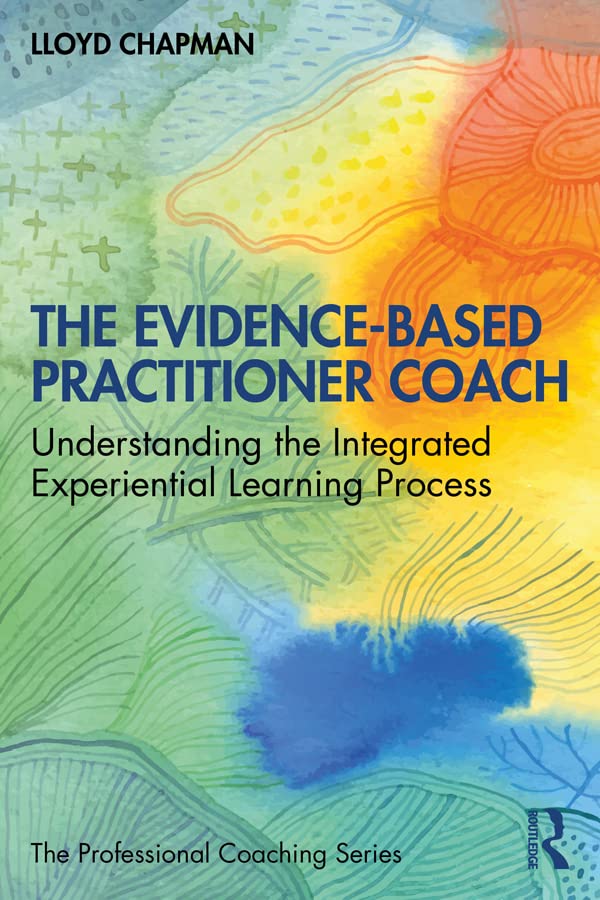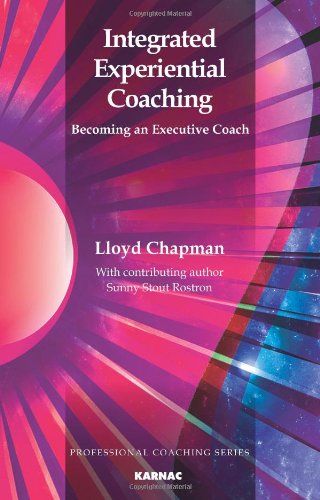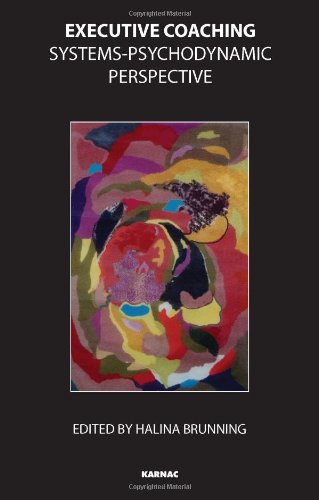The Evidence-Based Practitioner Coach: Understanding the Integrated Experiential Learning Process
Part of The Professional Coaching series - more in this series

Book Details
- Publisher : Routledge
- Published : January 2023
- Cover : Paperback
- Pages : 260
- Category :
Coaching - Catalogue No : 97574
- ISBN 13 : 9781032411361
- ISBN 10 : 1032411368
Also by Lloyd Chapman
There are currently no reviews
Be the first to review
The Evidence-Based Practitioner Coach gives a descriptive, phenomenological understanding of human development through the lens of the Integrated Experiential Learning Process, and how it can be applied in coaching.
Aimed at coaches who would like to ground their experience in an evidence-based practitioner model, it synthesises evidence and theory from a range of disciplines, exploring how we learn through a complex process involving brain, body and social relationships, and facilitated consciously and unconsciously through the central and autonomic nervous systems. It applies this understanding to a range of settings, contexts and environments. The book notably combines the fascinating knowledge produced by cutting-edge research with useful, practical methodologies developed by some of the wisest observers of humanity. Its sheer readability, in an engagingly down-to-earth and warmly human way, helps make the contents readily accessible to coach practitioners and others from non-academic backgrounds.
Rigorous and erudite, this book would be suitable for business coaches, corporate executives, senior managers, and human resource specialists, and provides an invaluable contribution to what it means to be a scientist-practitioner within the evolving profession of coaching.
Reviews and Endorsements
The increasing professionalisation of organisational and leadership coaching is supported by academics and practitioners, providing models and evidence with well-thought-through and practical research gravitas. Dr Lloyd Chapman's work is an excellent contribution to this development. He covers and integrates an extensive array of theoretical and practical views, stimulating deep (and sometimes surprising) reflection about the essence and practice of, as well as the way of being in, the coaching relationship. This book acts as a must-have desk reference for coaching practitioners and academics
Professor Fran Cillers, Department of Industrial and Organisational Psychology, University of South Africa.
Through his wide-ranging research, Lloyd takes us on a revealing journey into the evolving discipline of executive coaching. He is thoroughly understands how the coach's presence contributes to the coaching experience, and the physiological basis of that presence. Underpinned by the theories of Kolb, Wilber, Moustakas, Stacey, Freire and Almass, his focus is on how integrated experiential learning enhances personal growth and development. He encourages practitioners to develop their own coaching model within the context of the experiential learning cycle, so any coach wishing to enhance the potential of individuals and teams should read this book
Dr Sunny Stout-Rostron, Stellenbosch Business School, University of Stellenbosch, Cape Town, South Africa; Founding Preseident of Coaches and Mentors of South Africa (COMENSA).
Lloyd Chapman is a respected expert in the field of experiential learning, both academically and as a seasoned executive coach. In this text he advances his previous work with the latest thinking for the field, arguing that the best of us act continuously as researchers of our own practice. I particularly enjoy the way he synthesises complexity theory with areas of learning theory in his elegant Integrated Experiential Learning Process model. Highly recommended!
Dr Marc Simon Kahn, Chief Strategy Officer, Investex Plc and Visiting Professor, Middlesex University; London.
This book offers a unique and yet important contribution to the world of coaching. Kurt Lewin wrote 'there is nothing as practical as a good theory' and Chapman's book is living proof of this statement. Drawing on the work of such eminent people as Ralph Stacey, Paulo Freire, David Kolb and Ken Wilber, Chapman provides a theoretically-grounded evidence base to support and inform experienced coaches, exectuvies and HR managers about coaching and its relationship with experiential learning. This book needs to go on the must read list!
Professor Bob Garvey, Emeritus Professor at Sheffield Business School and Visiting Professor at Leeds Business School, UK.
Research shows that the efficacy of coaching is undeniable, yet we don't quite know why or how. Lloyd brings together seemingly unconnected theoretical worlds in a thought-provoking synergy that provides a foundation from which to critique, understand and practice coaching, and being a coach. This is a timely and welcome addition to our growing understanding of the profession
Dr Nicky Terblanche, Programme Head: MPhil Leadership Coaching, Stellenbosch Business School, University of Stellenbosch, Cape Town.
Combining practical experience and detailed research, this book is indispensable to coaching practitioners, and all those who want to understand the psychological and physiological responses to learning that could guide coaching in a business context. It contains new and thought provoking insights into the ever-evolving coaching field, especially related to the evidence-based model. It is really insightful for the coaching practitioner to consider the science involved and to understand the physiological impact of coaching on the mind and body! Highly recommended!
Colin Archery, Executive: Transformation, Gijima.com, Midrand, South Africa.
Chapman attempts to provide scientific underpinnings to a profession so easily filled by practitioners who reduce coaching to common sense or intuition. This book clarifies various dimensions coaches should consider in their practice, placing particular emphasis on the major impact on the coaching experience of the physiological states of both the practitioner and the client, so easily overlooked. Chapman's work provides useful insights into what a coaching approach should look like, while deliberately steering away from prescribing a ridig model
Dr Morné Weyers, Chief Information Officer, Curo Fund Services, Cape Town
Table of Contents
Introduction
1. Complex responsive processes and experiential learning
2. The physiology of learning
3. Movement and experiential learning
4. Human development models
5. Research methodology
6. Applying the Integrated Experiential Learning Process to coaching
7. Applying the Integrated Experiential Learning Process in business
8. The Integrated Experiential Learning Process in a team context
9. Coaching presence
10. Being a scientist-practitioner Bibliography
About the Author(s)
Lloyd Chapman completed his doctorate at Middlesex University and the National Centre for Work-based Learning, in the UK. He is an executive coach and organizational fitness trainer with twenty-two years business experience. He is a founding member of the Manthano Institute of Learning (Pty) Ltd and is member of COMENSA (Coaching and Mentoring Association of South Africa).
Customer Reviews
Our customers have not yet reviewed this title. Be the first add your own review for this title.








